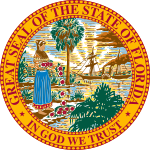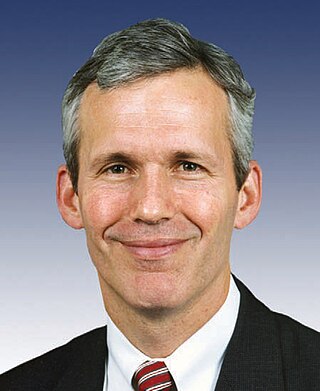
James Oscar Davis III is an American politician from the U.S. state of Florida. He is a Democrat and served in the U.S. House of Representatives from 1997 to 2007, representing Florida's 11th congressional district. He was the Democratic nominee for governor of Florida in the 2006 election, but was defeated by Republican Charlie Crist.

The 1868–69 United States House of Representatives elections were held on various dates in various states between June 1, 1868 and August 2, 1869. Each state set its own date for its elections to the House of Representatives before or after the first session of the 41st United States Congress convened on March 4, 1869. They coincided with the 1868 United States presidential election, which was won by Ulysses S. Grant. Elections were held for all 243 seats, representing 37 states. All of the former Confederate states were represented in Congress for the first time since they seceded from the Union.
The 1864–65 United States House of Representatives elections were held on various dates in various states between June 5, 1864 and November 7, 1865, in the midst of the American Civil War and President Abraham Lincoln's reelection. Each state set its own date for its elections to the House of Representatives. Members were elected before the first session of the 39th United States Congress convened on December 4, 1865, including the at-large seat from the new state of Nevada, and the 8 from Tennessee, the first secessionist state to be readmitted. The other 10 secessionist states had not yet been readmitted, and therefore were not seated.
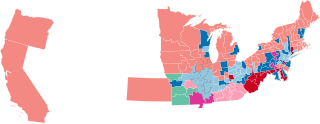
The 1862–63 United States House of Representatives elections were held on various dates in various states between June 2, 1862, and November 3, 1863, during the American Civil War and President Abraham Lincoln's first term. Each state set its own date for its elections to the House of Representatives before the first session of the 38th United States Congress convened on December 7, 1863. The congressional reapportionment based on the 1860 United States Census was performed assuming the seceded states were still in the union, increasing the number of congressional districts to 241. West Virginia was given three seats from Virginia after the former broke away from the latter to rejoin the union as a separate state. The seceded states remained unrepresented and left 58 vacancies. Republicans lost 22 seats and the majority, while Democrats gained 28.

The 1860–61 United States House of Representatives elections were held on various dates in various states between August 6, 1860 and October 24, 1861, before or after the first session of the 37th United States Congress convened on July 4, 1861. The number of House seats initially increased to 239 when California was apportioned an extra one, but these elections were affected by the outbreak of the American Civil War and resulted in over 56 vacancies.
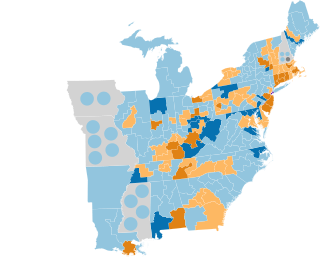
The 1844–45 United States House of Representatives elections were held on various dates in various states between July 1, 1844 and November 4, 1845. Each state set its own date for its elections to the House of Representatives. 224 elected members representing 27 states took their seats when the first session of the 29th United States Congress convened on December 1, 1845. The new state of Florida elected its first representative during this election cycle, while one vacancy in New Hampshire's delegation remained unfilled for the duration of the 29th Congress.
The 1838–39 United States House of Representatives elections were held on various dates in various states between July 2, 1838 and November 5, 1839. Each state set its own date for its elections to the House of Representatives before the first session of the 26th United States Congress convened on December 2, 1839. They occurred during President Martin Van Buren's term. Elections were held for all 242 seats, representing 26 states.

The 1800–01 United States House of Representatives elections were held on various dates in various states between April 29, 1800 and August 1, 1801. Each state set its own date for its elections to the House of Representatives before the first session of the 7th United States Congress convened on December 7, 1801. They were held at the same time as the 1800 presidential election, in which Vice President Thomas Jefferson, a Democratic Republican, defeated incumbent President John Adams, a Federalist. Elections were held for all 105 seats, representing 15 states.

The 1796–97 United States House of Representatives elections took place in the various states took place between August 12, 1796, and October 15, 1797. Each state set its own date for its elections to the House of Representatives. The size of the House increased to 106 seats after Tennessee became the 16th state to join the union. The first session of the 5th United States Congress was convened on May 15, 1797, at the proclamation of the new President of the United States, John Adams. Since Kentucky and Tennessee had not yet voted, they were unrepresented until the second session began on November 13, 1797.

Lois Jane Frankel is an American politician and lawyer who has been the United States representative for Florida's 22nd congressional district since 2013. She is a member of the Democratic Party.

The 1862–63 United States Senate elections were held on various dates in various states, occurring during the American Civil War. As these U.S. Senate elections were prior to the ratification of the Seventeenth Amendment in 1913, senators were chosen by state legislatures. Senators were elected over a wide range of time throughout 1862 and 1863, and a seat may have been filled months late or remained vacant due to legislative deadlock. In these elections, terms were up for the senators in Class 1.

The 1846 United States House of Representatives election in Florida was held on Monday, October 5, 1846 to elect the single United States Representative from the state of Florida, one from the state's single at-large congressional district, to represent Florida in the 30th Congress. The election coincided with the elections of other offices, including various state and local elections. The party primaries were held on June 20, 1846.

The 1848 United States House of Representatives election in Florida was held on Monday, October 2, 1848, to elect the single United States Representative from the state of Florida, one from the state's single at-large congressional district, to represent Florida in the 31st Congress. The election coincided with the elections of other offices, including the presidential election, the senatorial election, the gubernatorial election, and various state and local elections.
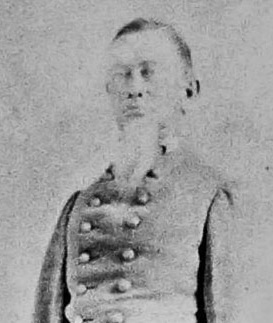
The 1858 United States House of Representatives election in Florida was held on Monday, October 4, 1858 to elect the single United States Representative from the state of Florida, one from the state's single at-large congressional district, to represent Florida in the 36th Congress. The election coincided with the elections of other offices, including various state and local elections.
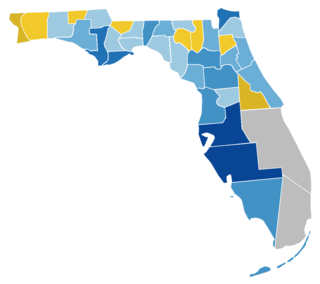
The 1860 United States House of Representatives election in Florida was held on Monday, October 1, 1860 to elect the single United States Representative from the state of Florida, one from the state's single at-large congressional district, to represent Florida in the 37th Congress. The election coincided with the elections of other offices, including the presidential election, gubernatorial election, and various state and local elections.

An election to the United States House of Representatives was held in Florida for the 39th Congress on November 29, 1865, shortly after the end of the Civil War.
Benjamin F. Allen, also referred to as B. F. Allen, was an American lawyer and politician in the state of Florida. Allen served as the 5th Secretary of State of Florida.

The 1861 Confederate States House of Representatives election in Florida was held on Wednesday, November 6, 1861 to elect the two Confederate States Representatives from the state of Florida, one from each of the state's congressional districts, to represent Florida in the 1st Confederate States Congress. The election coincided with the elections of other offices, including the presidential election and various state and local elections.

A special election to the Confederate States House of Representatives for Florida's 1st congressional district was held February 2, 1863.
